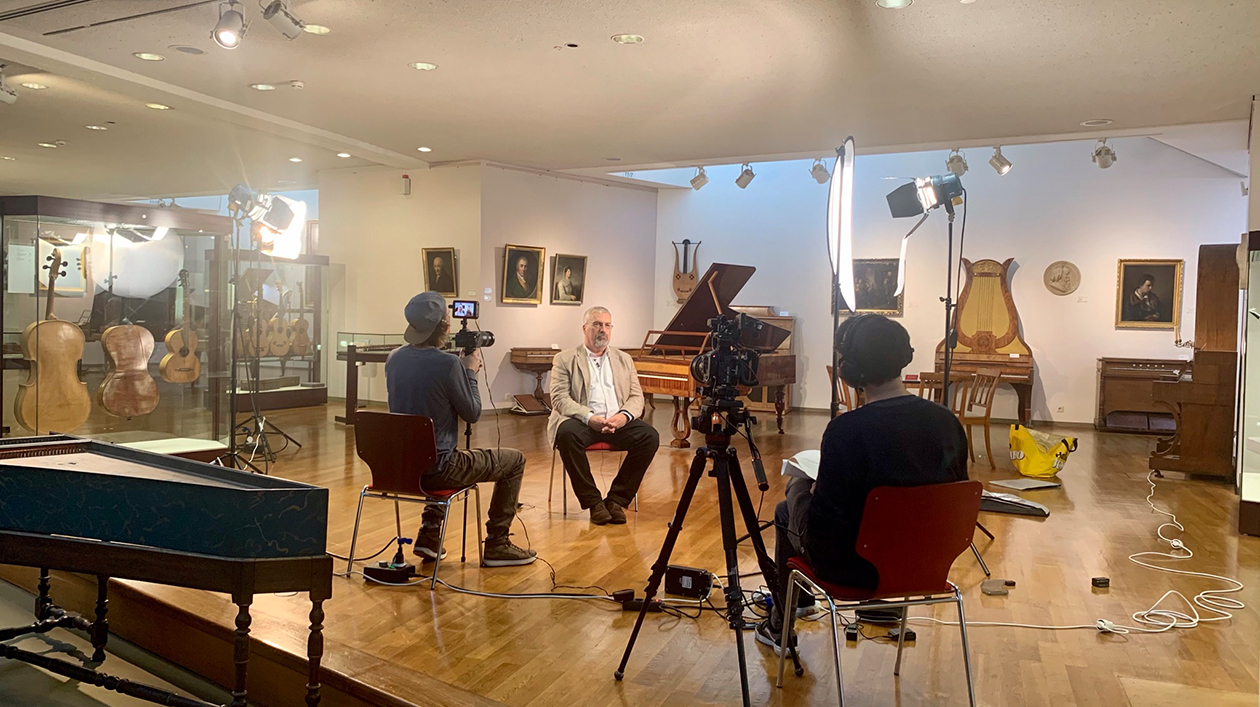Bereichsnavigation
sense:ability
Music-related knowledge transfer between materiality and virtuality

Music is a highly sensory affair, based on numerous laws and principles. We hear a favourite melody and an infinite variety of sounds. We see the conductor's gesture, the scores, and other written sources of music history and theory. We feel the soundwaves of the beats flowing through our bodies, touch instruments, perceive materials. Without the abilities of our senses and the abundance of sensory information, music would neither be perceptible nor understandable to us. How sensory, virtual, and inclusive should and can music-related knowledge transfer be?
The research project sense:ability approaches this question through a participatory strategic analysis process, combined with qualitative methods of visitor research. The analysis process begins with the question of which core themes should be conveyed and who we want to engage with. Then, in line with visitor orientation, work with corresponding focus groups follows. The insights gained are evaluated, and new formats of knowledge transfer are designed, incorporating sensory experience in playing and listening to music, analysis and exploration of music, and virtual tools. In the conception of new formats and modules, accessibility in the sense of the UN Convention on the Rights of Persons with Disabilities is just as much a focus as sustainability and reusability. Within the project, digital tools are not understood as a counterpoint to sensory experience but as an inclusive addition, making historical musical instruments accessible to all, even though they cannot be touched for conservation reasons.
In the field of visitor research, SIM and the Institute for Museum Research (IfM) are particularly interested in the interplay between emotional involvement and sensory experience. Therefore, in addition to participant observation, in-depth interviews on emotional-cognitive user reception in the museum will take place. A long-term measurement with laser-based depth sensors on selected objects should additionally provide insights into visitor behaviour in the museum.
The project's goals are to map the possibilities of music-related knowledge transfer, from which many music and research institutions as well as museums can benefit, while simultaneously strengthening the societal relevance and accessibility of musical knowledge and practices overall.
Project management
Period
December 2023 to June 2025
Financial support
Cooperation partner
- Institut für Museumsforschung Preußischer Kulturbesitz
- Leibniz-Forschungsverbund „Wert der Vergangenheit“, Research-Lab „Materialität und Medialität“
- Long-term measurement with depth sensors: PD Dr. Wolfgang Kesselheim, Universität Greifswald (conversation analytical research on social interaction) und Sergey Mukhametov, Technische Universität Kaiserslautern (Geoinformation sciences, movement tracking)

